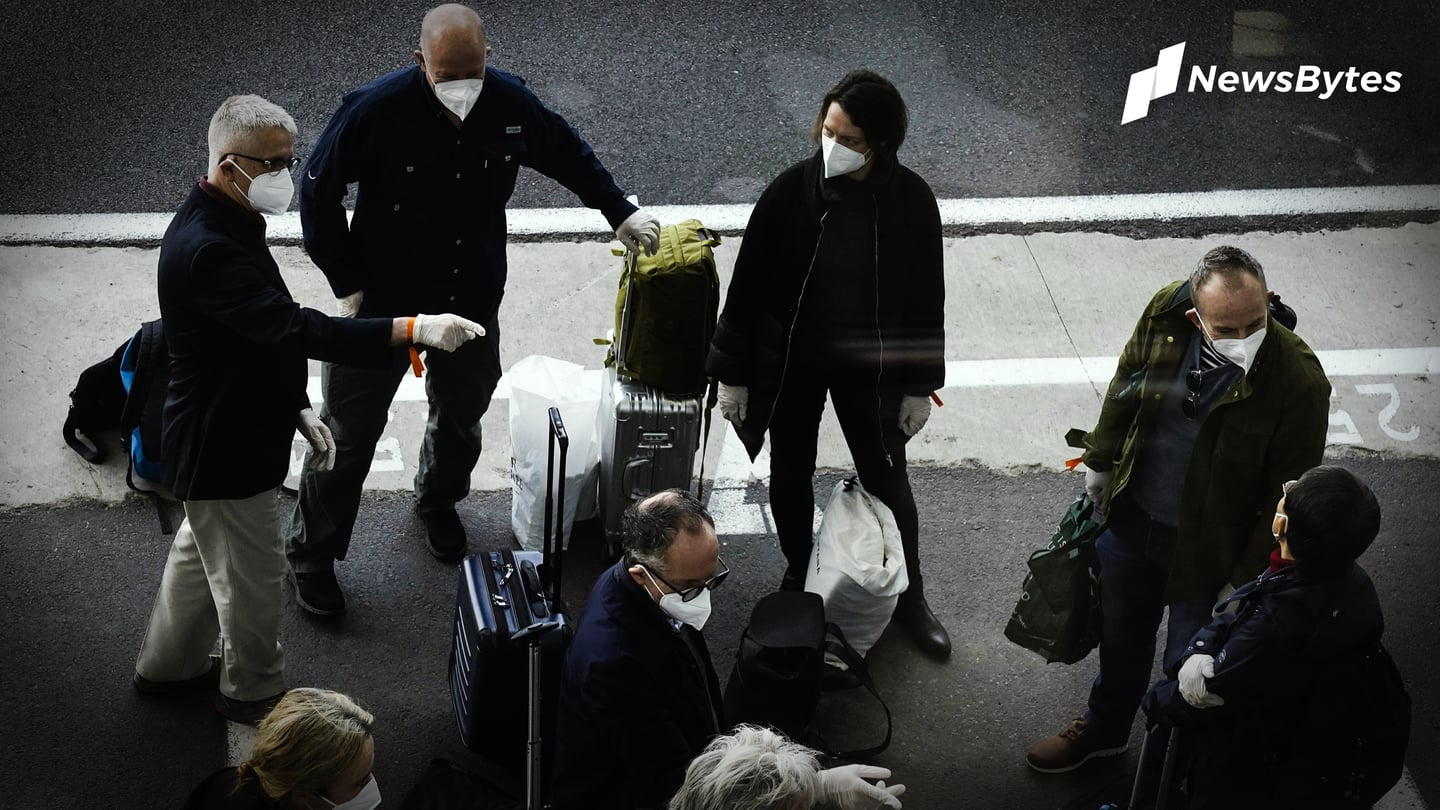
WHO team reaches China to investigate coronavirus origins
What's the story
A team of ten scientists from the World Health Organization (WHO) landed in Wuhan on Thursday to understand how coronavirus jumped from animals to humans, triggering a pandemic that has killed nearly two million globally and battered economies.
The researchers would have to quarantine in Wuhan, the epicenter of the outbreak, for two weeks before beginning their already delayed mission.
Here are more details.
Visit
WHO team finally entered China after last week's last-minute hiccup
As per state broadcaster CGTN, the experts arrived on a plane from Singapore and were greeted by Chinese officials wearing hazmat suits.
Just last week, WHO Chief Tedros Adhanom Ghebreyesus expressed disappointment as China didn't give the necessary approvals for the team's visit at the eleventh hour, because of which one team member was stuck in a transit country.
China's actions
China has blocked an independent probe into virus' origins
The team's visit assumes significance as China has, for more than a year, derailed an impartial probe into the virus' origins.
In April, when Australia called for an investigation, Beijing reacted by suspending the imports of Australian beef, wine, and other items.
Months later, in July, two WHO officials were allowed a visit to lay the groundwork, but they couldn't enter Wuhan.
Challenge
The team has reached but it faces an uphill struggle
There is little hope that the probe will be impartial. The Chinese government, led by President Xi Jinping, has demanded that scientists from his country will overlook crucial parts of the investigation.
The country has also restricted the WHO team's access to pertinent research and data.
The fact that several months have passed since the outbreak would also affect the inquiry.
Details
A wildlife poacher may have passed the virus
In November, zoologist Peter Daszak of the US group EcoHealth Alliance told AP that poaching could have led to the health crisis.
A wildlife poacher could have possibly passed on the virus to a trader, who then took it to Wuhan, he had said.
This and plenty of other possibilities should be taken into account, implying that this visit won't be enough.
Lab
Theory that accidental leak caused pandemic won't be assessed
The team, led by Peter Ben Embarek, is likely to focus on the Wuhan Institute of Virology.
The institute has enough genetic information about bat coronaviruses, gathered post the 2003 outbreak of Severe Acute Respiratory Syndrome (SARS).
The WHO doesn't plan on probing the possibility that the virus leaked accidentally at the Wuhan lab, a theory peddled by a few American politicians.
Quote
'Won't have clear answers after this mission'
"I don't think we will have clear answers after this initial mission, but we will be on the way. The idea is to advance a number of studies that were already designed and decided upon some months ago to get us a better understanding of what happened," Embarek said.
Curbs
China reported its first coronavirus death in eight months
The team's trip comes at a time when China imposed varied restrictions on nearly 20 million people in Hebei, Beijing, and other areas, as new infections surged.
For the first time in eight months, China reported one coronavirus-linked death.
"I haven't seen the words 'virus death' in so long, it's a bit shocking! I hope the epidemic can pass soon," wrote one Weibo user.